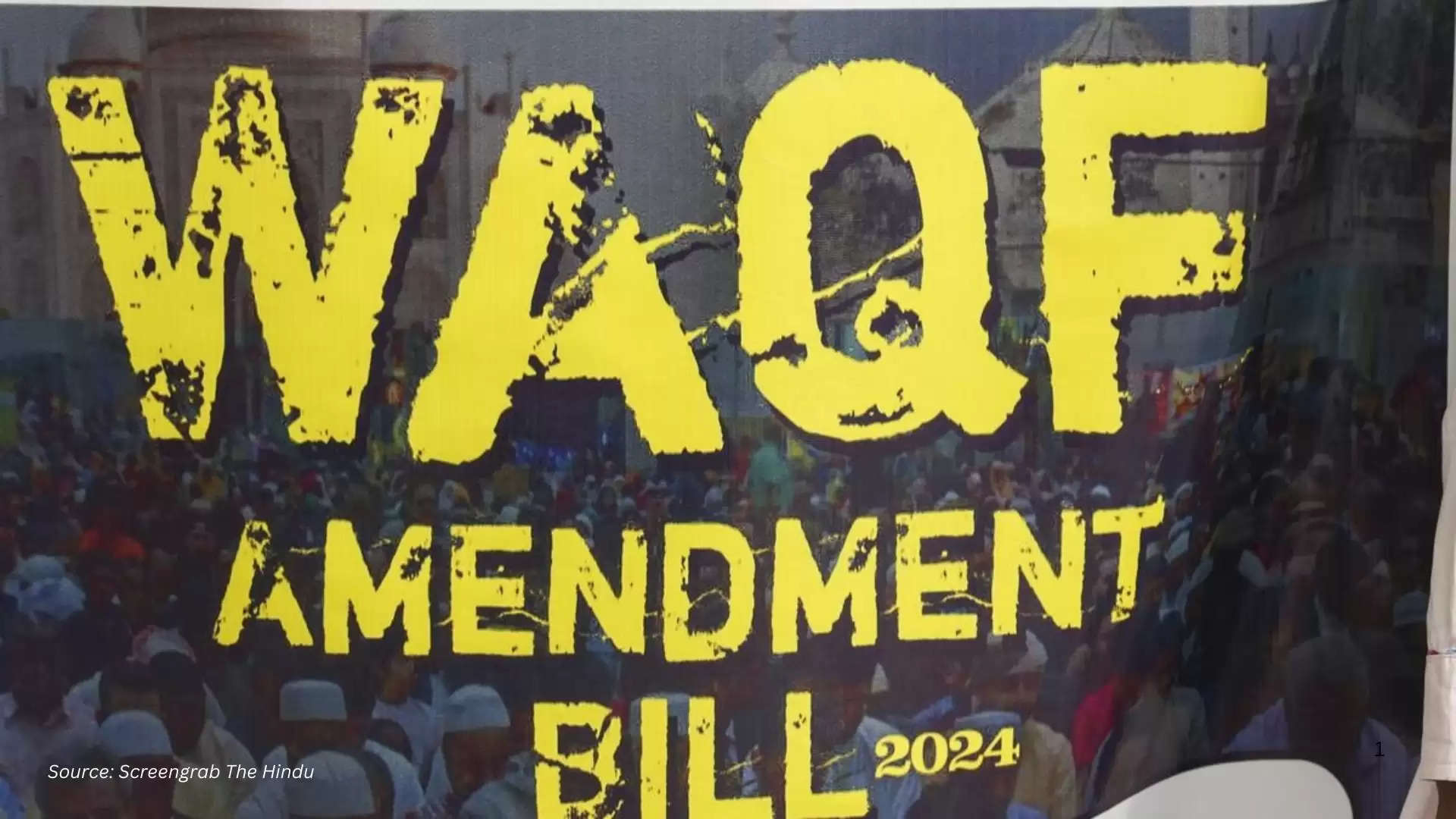Protests Across India Against Waqf Bill
The Waqf (Amendment) Bill, 2024, was passed in both Houses of Parliament; protestors describe it an 'infringement' of Muslim community rights
April 5, 2025 - A legislation to bring amendments to the Waqf Act, 1995, was cleared in the Lok Sabha and the Rajya Sabha amid fierce objections from Opposition parties and sparking nationwide controversy. This Bill makes changes to the 1995 Act which governs the management of Waqf properties in India. The Waqf (Amendment) Bill, 2024, now awaits President Droupadi Murmu’s assent to become law.
The Waqf (Amendment) Bill, 2024, was passed in Parliament after hours of heated debate. The Bill was first cleared on April 3 in the Lok Sabha by 288 votes in favour and 232 against. The Upper House passed the legislation by 128-95 votes after a marathon debate of 12 hours yesterday, April 4.
Muslim leaders and Opposition parties call the Bill "unconstitutional" and say that it infringes on the rights of India's Muslim-minority community.
Protests broke out across the country yesterday against the Bill. After Friday prayers, protestors in Kolkata, Ahmedabad and Chennai gathered in large numbers demonstrating against the Bill calling it “anti-democratic” and demanding its withdrawal. In Kolkata, people were seen carrying banners saying “Reject Waqf Bill” and “We reject Waqf Amendment Bill”.
The Gujarat unit chief of All India Majlis-e-Ittehadul Muslimeen (AIMIM) was detained by the police in Ahmedabad along with 40 AIMIM members for carrying out agitation. Coimbatore and Bengaluru, too, saw street protests demanding withdrawal of the Waqf Amendment Bill.
The All India Muslim Personal Law Board (AIMPLB) has vowed to challenge the Waqf (Amendment) Bill in Court. Congress MP Mohammed Jawed and AIMIM chief Asaduddin Owaisi yesterday moved the Supreme Court against the Bill. Owaisi has described the Bill as a “brazen violation” of Muslim rights. Advocate Nizam Pasha, who represented Owaisi in Court, argued that establishment and management of Waqfs form an integral part of the practice of Islam and are entitled to Constitutional protection.
The Government has defended the Bill saying it aims to make the management of Waqf (Muslim properties) more transparent.
Meanwhile, five leaders of the Janata Dal (United) have resigned from the party after it supported the Bill. Giving in his resignation letter, Raju Nayyar wrote, “I am deeply hurt by the JD(U) voting in favour of this black law, which oppresses Muslims”.
With Media Inputs
To join us on Facebook Click Here and Subscribe to UdaipurTimes Broadcast channels on GoogleNews | Telegram | Signal



